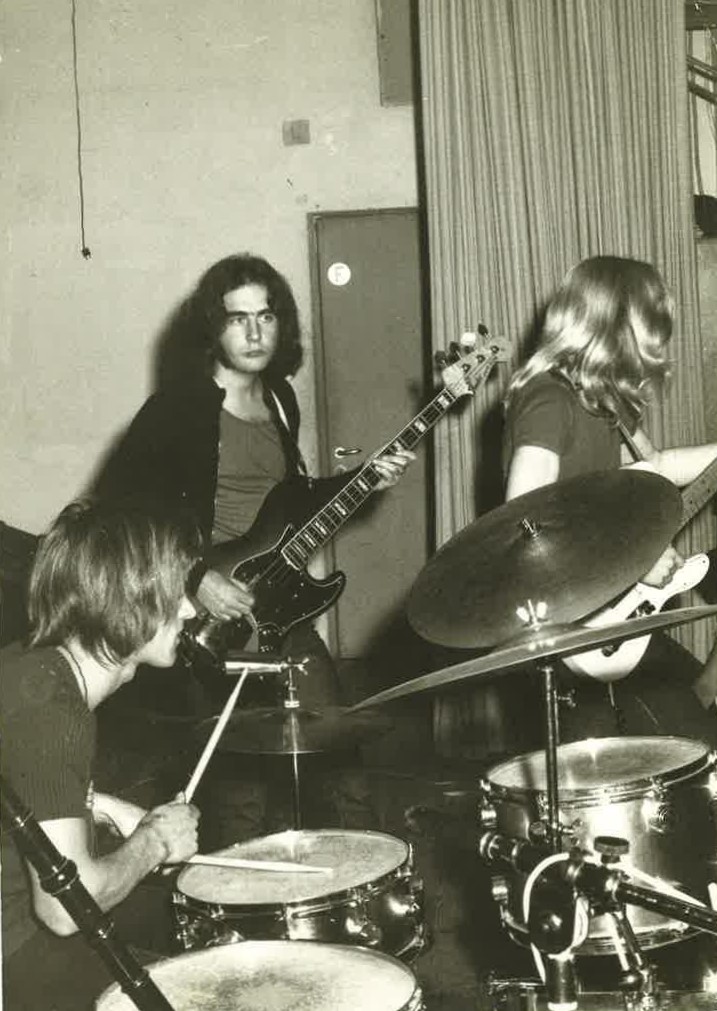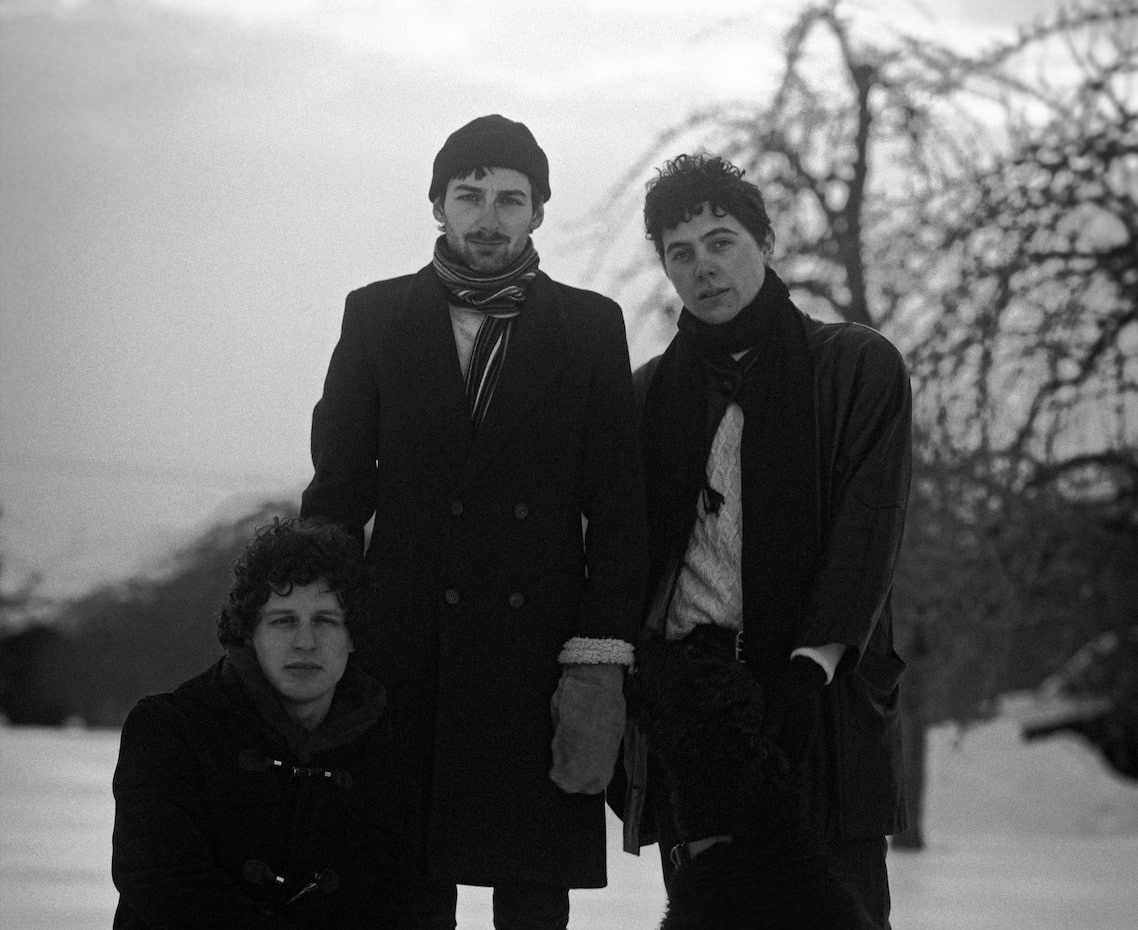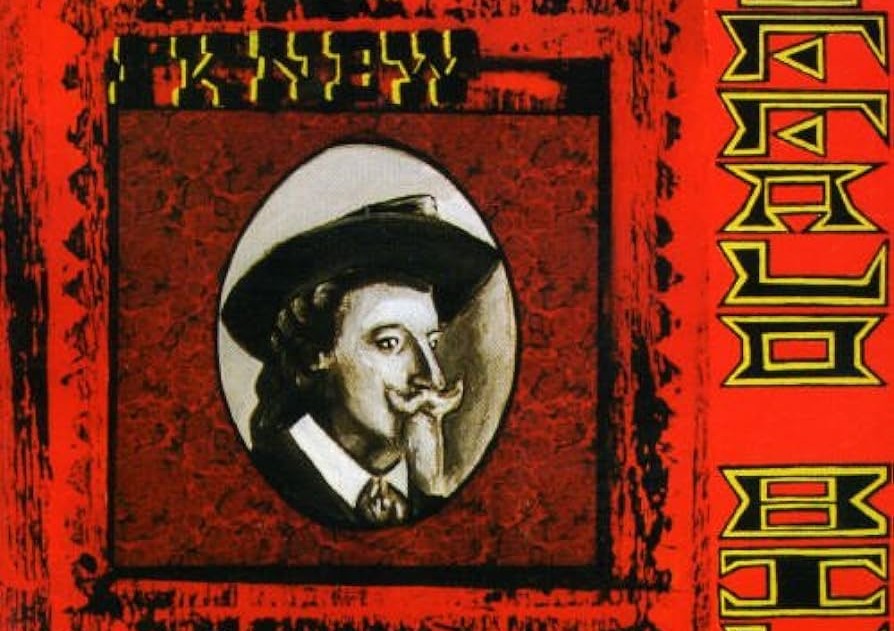Dead Girl’s Party
“A cross between Dome and Roxy Music”
Matt Krefting and Scott Foust, both key figures of the Western Massachusetts underground, but from a different generation, made one record together, 2010s post punk/no wave album The Things I’ve Lost. At the time released by Entr’acte, now re-released by Feeding Tube.
How did the both of you meet? What do you have in common? And what are the diffrences between you two?
Matt Krefting: Scott and I met, oddly enough, on the softball field in the summer of 2001. We were both members of a local softball team made up mostly of book and record nerds. We got along so well that when the season ended we didn’t want to have to stop seeing each other, so we began spending lots of time together. In terms of what we have in common, our senses humor lined up right away. It ended up being the case that our worldviews walk a very similar line along the edge of cynicism and romantic hope.
Our differences are primarily generational. Scott doesn’t go to as many shows as he used to, but then again neither do I. But I still go to more. He still surprises me constantly with weird new releases that boggle my mind.
And, there’s a difference that is really a similarity – he’s spent much of his recent time exploring mid-century jazz, while I’ve eschewed my own keeping up with new releases to focus in on early 90’s hip-hop, the music of my youth. That may seem different, but what’s going on is that we’re each digging in deep to genres outside of our own modes of production to learn about intricacies in how music can be produced and how it functions. Plus, we share the very best of what we discover with one another. If that’s not a picture of friendly cultural exchange in the present day, I don’t know what is.
Scott Foust: I think I met Matt after he had come to a couple of Tart shows around 2000. He was a student at Hampshire College at that time. It did not take more than a couple of evenings together before I realized Matt was a person of quality. Since Hampshire College is only about a 15 minute drive from my house, we started hanging around together a good deal. I played him a lot of records he loved and had never heard (MB, Dome, etc.) Matt returned the favor a few years later by making me realize how great Roxy Music and Bryan Ferry were. I knew of Roxy Music, of course, but was of the ‘only good records are with Eno’ school. Apart from our taste in music and our view of the way the world works, the thing Matt and I most have in common is our Romantic Spirit, in the Casper David Friedrich sense. As to our differences, Matt is 25 years younger than me, I smoke many more cigarettes than he does, and our recreational listening is quite different. (I’m into 50s Jazz these days, Matt is into 90s Hip-Hop.)
Why a re-release of The Things I’ve Lost? Does a release on vinyl feel like ‘a more official’ release than a release on tape? Is vinyl ‘the real thing’?
Matt Krefting: We always conceived of the album as a vinyl release, in its sequencing, timing and number of tracks, etc. The music was so outside of what our label connections were releasing at the time that when the cassette offer came up, we readily agreed. Alon’s label is one we both admire, so it seemed like a good fit. We’re record listeners, and when Feeding Tube really started showing that it was a glorious resource for strange Western Massachusetts-based projects, we pitched it to them and they decided to spin the wheel, so to speak.
Scott Foust: I have always been as pro-vinyl as anyone. Swill Radio continued to release LPs in the late 90s and early 00s when no one would buy it, preferring CDs. I love records, so, yes, this does feel like a more definitive release to me. We had a bit of remastering done by Sean McCann, so the vinyl release sounds more like the original recordings. Matt and I worked very hard on our unorthodox schemes of mic placement and I think one can hear the sonic ornaments much better on the LP.
Do you look at this record now in a different way than when it was released in 2010, because of the time inbetween?
Matt Krefting: I honestly don’t. There’s not a thing about it that I would change. If anything, the tone of the record speaks to me with more fervent melancholy than when we recorded it. The passage of time allows me perspective, which only allows me more objective confidence in its quality. It felt like an excellent record when we made it, and now it feels like an excellent record when I listen to it. Which I am doing now, as it happens.
Scott Foust: No, not at all. I was and am still very proud of this LP. Much like the IFCO LPs, no matter how old they are, they still don’t sound like anything else. I think the Dead Girl’s Party LP is the same sort of thing.
How do you remember the recording of this record?
Matt Krefting: I could go on and on about the recording of this record. It was one of the most pleasurable and rigorous creative processes I’ve ever undertaken. Every Wednesday for a few months I would arrive at the house in the early afternoon and we’d work through whatever ideas we’d had during the past week (there were email exchanges, but the lion’s share of the work was done collaboratively, in person).
Scott Foust: Once Matt and I finally decided to do songs instead of drones, we were fortuitous that Matt had a job close to my house where he got off at noon every Thursday. We would get together around 1:30 and start working. It took us a while to work out the songs and arrangements, as neither of us are expert musicians. The recordings took a while as well, but that was mostly working out amp and mic placement. We did not do very many takes of any of the songs or of the overdubs — all recorded with my trusty 4-track cassette machine. I remember the recordings as being fun but exhausting as we worked very hard.
Dead Girl’s Party only made this one record. Why?
Matt Krefting: My day job at that time was not far from Scott and Karla’s house, and every Wednesday I got let out early, allowing me to make Wednesday afternoons a regular session time. It was idyllic. Not long after we finished recording and mixing, I got another job which actually helped me pay the bills during the collapse of my personal life, and I fell prey to the crippling temporal impacts of this sad reality. I cannot imagine that this is the only record we’ll do. Watch out. These moments always tease.
Scott Foust: Not long after we finished The Things I’ve Lost, Matt got a much better job, but with regular hours. I am fairly certain we will do another LP someday. Matt and I both have other musical projects as well, but it could be done. I am 60 now and have been doing music for 40 years with no financial compensation. The older you get, the more you learn to budget your time. That said, we both have some ideas for new songs. Matt lives further away now as well, which makes getting together more difficult.
Do you see Dead Girl’s Party as ‘a real band’, or more as kind of a project, an idea maybe?
Matt Krefting: Dead Girl’s Party is a band, through and through. We approached it that way and the results act that way. Full stop.
Scott Foust: A band. Definitely.
Can I see this record as a kind of tribute to no wave and post punk?
Matt Krefting: Sure, that’s an unavoidable comparison given the way it sounds, but I don’t see the record as a tribute to anything. We funneled components of music that we both love into some ways that we might start to think about how songs work. The song structures are so basic they barely functioned in our initial conception, and then we worked over elements that would make them seem more like songs than they actually were. That’s in the spirit of no wave and punk, but it’s also in the spirit of all kinds of other music that we both like, be it Erik Satie or Eric B & Rakim.
Scott Foust: Well, that was the music of my youth and I still love a lot of it, as does Matt, but that wasn’t what we had in mind. Once we decided to do songs, we wanted to do a cross between Dome and Roxy Music, two bands we both love and two bands that often subverted the song form in strange and interesting ways. Of course the music doesn’t sound much like either Dome or Roxy Music, but we knew it wouldn’t.
The CD-R version of this record got a very nice picture of the both of you printed on the on the CD-R. Where and when is this picture taken?
Matt Krefting: This picture was taken in Scott’s driveway during one of the many magnificent evenings that were routine there during that period. I was a full-time student when the photograph was taken, and we taught each other a great many things.
Scott Foust: In my mind that picture was taken a bit before I came up with the name for the band when Matt was at my house for a get-together. (Sometime in 2002.) I was on my daily Health Walk, when I saw a balloon rolling in a fenced in yard. The phrase Dead Girl’s Party popped into my head. I immediately thought this would be a great name for a band with Matt and me. We both always liked that picture, so we used it for the LP as well, although we are both a good bit older now.
– Joeri Bruyninckx
© Copyright http://www.psychedelicbabymag.com/2018






Nice to see the group featured here. Good band and good album, it's just right that their notable recording is re-released.